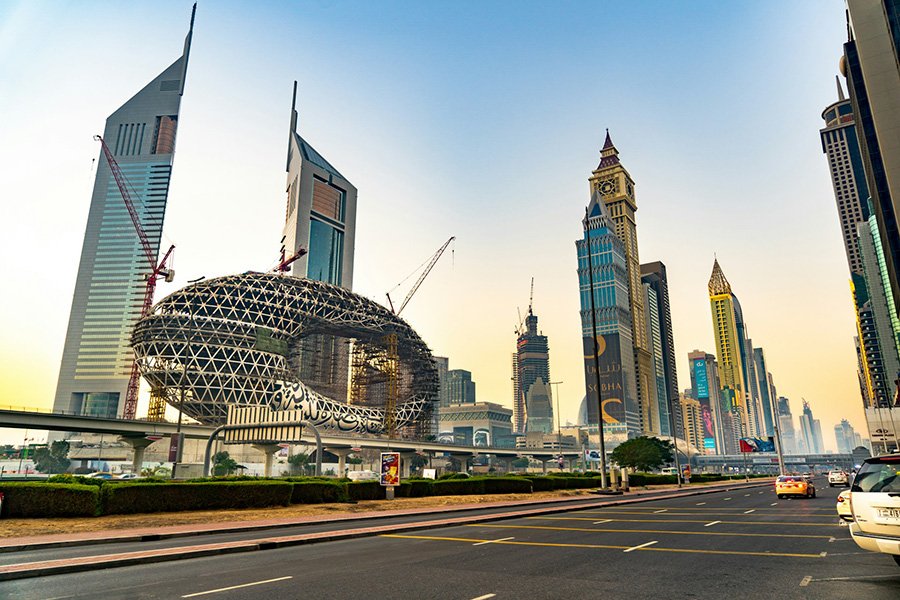Real Estate / Investments / News / Reviews / Analytics / United Arab Emirates / Real Estate UAE 02.09.2025
Foreigners in Dubai Banned from Selling Property via Power of Attorney

Photo: Unsplash
Dubai’s Land Department has introduced new requirements for foreign property owners. When selling real estate, payments must be made strictly in the name of the owner and credited to their account in a UAE bank, Gulf News reports. Authorized representatives may still act on behalf of sellers in court or when signing documents, but they are no longer allowed to receive payments for the property.
Previously, overseas investors frequently used a Power of Attorney (PoA) to delegate transaction formalities to relatives or agents. This allowed banks to issue checks if the document had been certified by Dubai courts. The new rules eliminate this practice: all payments must now go directly to the name listed on the property title deed.
“These changes only affect financial settlements,” explained Yasha Trivedi, founder and CEO of consultancy YOUAE Mortgages. “The Power of Attorney remains valid for legal representation, but all payments must be tied to the owner’s name. The authorized representative may act on behalf of the seller, but funds are transferred exclusively to the owner’s account.”
Industry representatives note that the previous PoA process was more complicated, requiring verification through the Ministry of Foreign Affairs and additional approvals in case of address or document changes. The new initiative allows status registration directly through Dubai courts, including remote formats such as Zoom video calls. Authorities emphasize that the changes will make transactions more transparent and ensure tighter control over money flows.
Earlier, Dubai launched the region’s first real estate tokenization platform, Prypco Mint. Initially available only to UAE residents with an Emirates ID, the service is expected to expand internationally in the future.
The program sets a minimum investment threshold of AED 2,000 (about $545). Transactions are allowed only in UAE dirhams and through licensed Vara companies. Properties ready for sale are included, with Prypco and Ctrl Alt among the first participants. All funds are held in a Client Money Account and released only after the transaction is completed, reducing risks for private investors. Income is generated through rental yields and property appreciation.
According to developers’ estimates, tokenized assets could account for 7% of Dubai’s real estate market by 2033, equivalent to AED 60 billion ($16.3 billion). Authorities view the platform as a step toward democratizing the market and broadening access to investments previously reserved for institutional players and wealthy buyers.
Since February 2025, banks stopped financing Dubai Land Department fees (4%) and brokerage commissions (2%) through mortgages. These costs now fall entirely on buyers, increasing total expenses. For example, on a transaction worth AED 1 million ($272,000), additional fees amount to around AED 60,000 ($16,300).
At the same time, authorities allowed private landowners in Sheikh Zayed Road and Al Jaddaf to convert their plots into full freehold ownership. According to the DLD, 457 plots are eligible, with a 30% conversion fee applied to the property value.
Conditions for obtaining “golden visas” through real estate investment have also been updated: investments can now include off-plan projects if at least 50% is paid upfront or backed by a bank guarantee.
The Dubai Media Office, citing the Land Department, reported that in the first half of 2025, 125,538 real estate transactions were registered in Dubai. This marks a 26% increase compared to the same period in 2024 (99,947). The total transaction value reached AED 431 billion (over $117 billion), up 25%.
Investments rose to AED 326 billion ($89 billion), with the number of investors increasing by 26% to 94,717. Among them, 59,075 were newcomers, investing AED 157 billion ($43 billion), with nearly 45% being UAE residents. Women accounted for 34,792 transactions worth AED 73.2 billion, highlighting their growing role in the market.
Foreign buyers ranked first geographically, investing AED 228.35 billion ($62 billion). Investors from Arab countries contributed AED 28.4 billion ($8 billion), while Gulf buyers invested AED 22.56 billion ($6 billion). In terms of volume, top areas included Al Barsha South Fourth (10,469 deals), Al Yalayis 1 (7,595), and Wadi Al Safa 5 (7,178). By value, leaders were Dubai Marina (AED 25.1 billion / $7 billion), Business Bay (AED 22.5 billion / $6.1 billion), Burj Khalifa ($6.1 billion), and Palm Jumeirah ($4.6 billion).
Despite Dubai’s strong appeal to billionaires worldwide, some analysts warn the UAE risks losing its safe-haven status amid the Israel conflict. Stricter rules for Russian nationals have already reduced investment flows from that market.
Outlook for the real estate sector remains uncertain. Fitch Ratings forecasts a decline in Dubai property prices in late 2025 and early 2026 due to oversupply. Knight Frank expects an 8% rise in 2025 but warns that the delivery of 19,700 new villas could increase correction risks. Additional pressures include falling oil prices and global geopolitical instability. Analysts caution that excess supply and uncertainty could trigger a sudden market downturn if a new bubble emerges.








